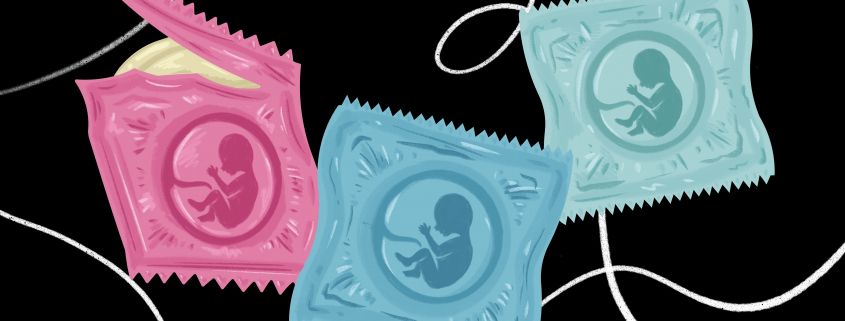Texas abortion law will alter college sexual relationships
Abortion has never been an uncontroversial topic. Abortion restrictions always seem to be on the horizon, especially in conservative states and during the Trump administration. The ebb and flow of panic about these possible restrictions has become a reliable constant of life in the United States.
The new abortion law passed in Texas at the beginning of the month, however, signifies a turning point for abortion rights in the United States. Dubbed by NPR as one of the “strictest abortion bans in the country,” the law makes abortion illegal after cardiac activity is detected in the embryo, which is usually at the six-week mark and makes no exceptions for cases involving rape or incest.
Abortion bans’ implications for college students are scarcely explored, but they are particularly salient this time around. College is a time when many students explore their sexualities and engage in casual sexual relationships.
However, the new abortion restrictions in Texas threaten these habits. According to Prochoice.org, those between the ages of 15 and 19 have about 19% of total abortions, and those aged 20-24 have about 33% of total abortions, showing that college-aged people make up a substantial percentage of those seeking abortions. Without access to safe abortions after the six-week mark, women who get accidentally pregnant will have severely limited options.
Even if those engaging in casual sexual relationships use contraceptives, the possibility of pregnancy does not disappear. Without the reassurance of abortion care, college students’ mental health may suffer. The American Psychological Association reported that “Women who are denied an abortion are more likely to initially experience higher levels of anxiety, lower life satisfaction and lower self-esteem compared with women who received an abortion.”
Additionally, a higher volume of unwanted pregnancies will surely affect college students’ relationships with their sexual partners and potentially alter the course of their lives. While we cannot foresee how this will impact the nature of college relationships, we can predict that college students might view sex in a more restrictive way, based on a punctuated fear of what one wrong move with contraception could lead to.
USC, along with other colleges and universities, should provide support for students as a result of this restrictive law, especially for Texan students. They could host forums for students to air their concerns and grievances in the presence of a mental health professional, or they could provide students with the resources to access abortion care in times of crisis. USC already allows for students to get mental health assistance through the “My SHR” portal, where they can schedule telemedicine visits with a professional in a group setting or one-on-one, but these resources may not be specific enough to fit the unique issue at hand.
USC’s obligation to its students is especially pertinent at this time — not only for its reputation but to regain the trust of students, especially female students. The University paid over $1 billion in settlements as a result of the grave misconduct by former gynecologist George Tyndall, who worked at the University for more than 30 years and sexually abused many students as patients.
The inevitable loss of trust in USC’s healthcare will only be exacerbated if they do not take action now. Through tangible action, the University must show students that it does not take matters related to gynecology lightly. It must be willing to put in the work to make students feel safe and taken care of at Engemann Student Health Center and beyond.
This abortion restriction in Texas is catastrophic, and its consequences are more far-reaching than many of us can comprehend this soon after its passing. However, for college students, this law will alter the ways in which they view hookup culture and participate in it. For colleges and universities, this law presents an opportunity for them to step up and act as the support systems they claim to be for students.


